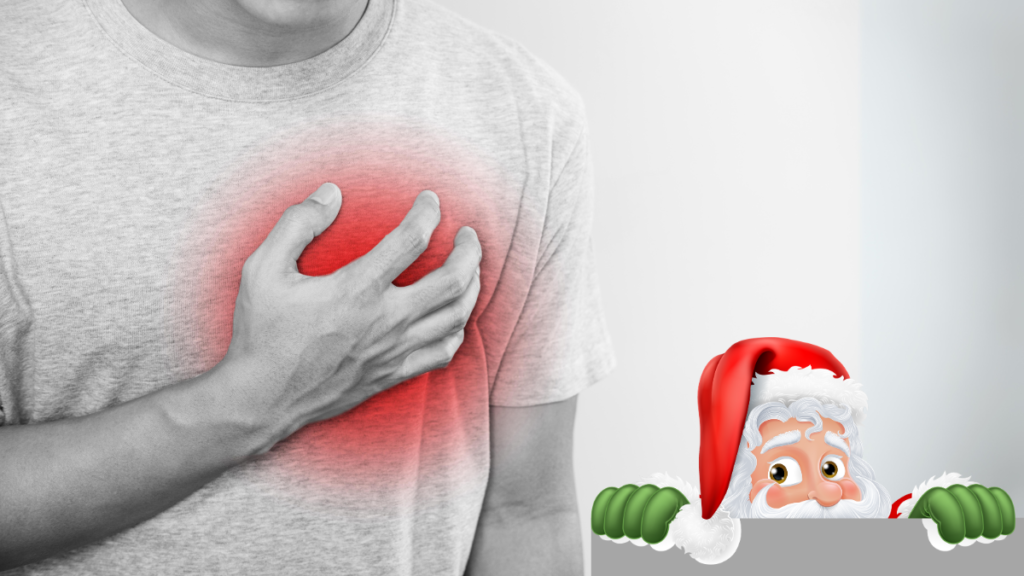
A term coined in the late 1970’s, Holiday Heart Syndrome (HHS) refers to a group of conditions that appear to increase and land people in hospital over the Christmas holiday period.
Statistically speaking there are more cardiac related deaths around Christmas week than at any other time in the year and although cold weather can have an impact on the cardiovascular system, these heart problems are also reported in areas where the weather is warm and even hot in December time.
What is HHS?
HHS refers to irregular or abnormal heart rhythms, generally caused by a change in lifestyle around this festive time of the year.
It may sound humorous but despite the jovial title given to this syndrome – irregular heart rhythms such as atrial fibrillation can lead to blood clots, stroke, heart failure and even heart attacks, so must be taken seriously.
What are the symptoms?
The symptoms of an irregular heart beat vary between individuals. Some may be able to feel as though their heart is racing, others will feel generally unwell, with shortness of breath and more tired than usual.
What causes HHS
It is most likely that the abnormal or irregular heart rhythm is set off by a combination of factors including:
- Increased alcohol consumption
- Increased intake of food
- Increased salt consumption
- Caffeine
Alcohol consumption
We don’t want to spoil your fun this holiday and aren’t suggesting an all out ban on alcohol, but binge drinking has long been known to be responsible for irregular heart rhythms. Drinking in moderation is advisable and we know that binge drinking is linked with more than heart problems, but also many injuries and other reasons for hospitalisation too.
Excessive eating, salt consumption and caffeine
Overeating distends and stretches the stomach, which can over-stimulate the central nervous system and lead to a rapid and irregular heart rhythm. Combine that with increased salt, which leads to fluid retention and elevates the blood pressure, plus caffeine and you can see where HHS has come from.
Avoiding HHS
Avoiding the triggers mentioned above may not sound fun (or easy when surrounded by temptation) but taking a step back and remembering to take care of yourself this Christmas is key.
Incorporating some regular time out (whether it be mediation, a walk or sitting quietly reading a book) is helpful in keeping you from letting the festivities run away with you. The holidays often bring a lot of stress and lack of sleep too, so try to remain mindful about how you are feeling and don’t forget about your own wellbeing.
Beware heart symptoms year-round
A racing heart, tiredness or shortness of breath (at any time of the year) can be a sign of atrial fibrillation or abnormal heart rhythms so make sure you see a doctor as soon as possible for assessment.
If you ever get chest pain or a heaviness in your chest, please call 999 for emergency care.
At ROC we have ECGs (heart tracing equipment) on site and can confirm an irregularities of the heart.
For any cardiac concerns, book an appointment with one of our GPs and we can arrange further investigations, including the Angiodefender. Find out more about the Angiodefender here.

